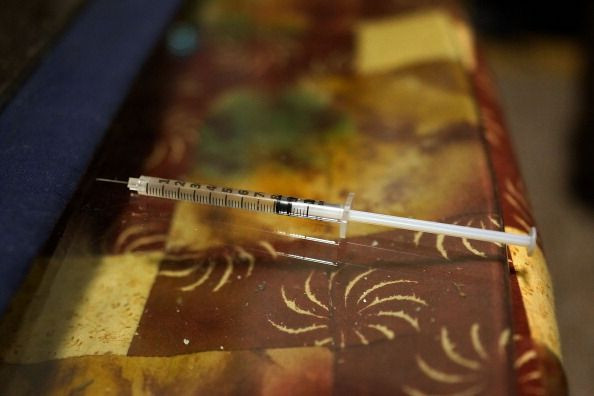Opioids May Soon Get Replaced With NSAIDS, Study Suggests

Global Non-steroidal Anti-inflammatory Drugs are likely to replace opioids in post-surgery patients, according to a study. The study stated that the replacement will not affect the postoperative comfort level of the patients.
The research, which was presented at the annual meeting of American Orthopedic Society of Sports Medicine, focussed on the various ways to reduce the patients' need for narcotic drugs. It was presented by a group of researchers from the New York University Hospital for Joint Diseases.
“The current opioid epidemic demands physicians seek ways to decrease patients’ requirements of narcotic medications without sacrificing their postoperative comfort level,” lead researcher Kamali A Thompson said in a statement.
“This study evaluated patients’ pain following arthroscopic shoulder instability repair and compared the use of narcotic medications between patients prescribed NSAIDs with rescue opioid prescription to those prescribed opioids alone,” the researcher added.
Opioid are described as a class of drugs that contain “illegal drug heroin, synthetic opioid such as fentanyl, and pain relievers available legally by prescription, such as oxycodone (Oxycontin), hydrocodone (Vicodin), codeine, morphine, and many others," according to the National Institute of Drug Abuse (NIDA) in the United States. The Institute reported that over 130 deaths occur daily due to the overuse of opioids.
The misuse of opioid prescription in the country is also estimated to create an economic burden of $78.5 billion a year, according to the Centers for Disease Control and Prevention. The agency estimated that most of the expenses are related to lost productivity, costs of healthcare, criminal justice involvement and addiction treatment.
For the study, the research team randomly selected 40 patients who were preparing for an arthroscopic shoulder instability repair. The scientists then divided the patients into two groups. The first group of participants received 600 milligrams of Ibuprofen along with 10-pill rescue prescription of Percocet 5/325mg. The other group got only Percocet 5/325mg after the surgery.
At the end of the study, the researchers found a significant reduction in opioid consumption among those who received Ibuprofen along with Percocet.
“It is possible to alleviate postoperative pain with lower amounts of opioid than are currently being prescribed. The public health crisis of opioid abuse requires an immediate solution beginning with the reduction of post-operative narcotics distribution,” Thompson said.
© Copyright IBTimes 2024. All rights reserved.





















